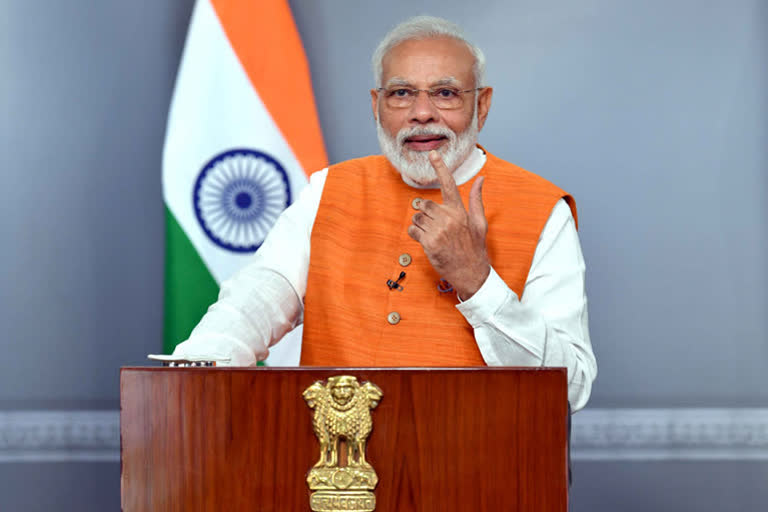Hyderabad: The visit of India’s Prime Minister Shri Narendra Modi to Saudi Arabia on 28-29 October 2019 had several important outcomes in the bilateral sphere, especially in the energy and investment areas. This engagement provides a strong foundation for the continued contribution of the large Indian diaspora in Saudi Arabia, estimated at 2.6 million, to the long-term stability of the Saudi Arabian economy.
In 2018, remittances from this diaspora to India exceeded $11 billion. The visit illustrated the dynamism of India’s revitalization of her partnerships with countries in the Gulf region to sustain a framework for pursuing her core national interests as an emerging major power.
The most significant diplomatic outcome of the visit was undoubtedly the establishment of the Strategic Partnership Council headed by Prime Minister Narendra Modi and Saudi Arabia’s Crown Prince Mohammad bin Salman bin Abdulaziz Al-Saud. The Council represents the coming of age of the Strategic Partnership between India and Saudi Arabia announced in the Riyadh Declaration of March 2010. It provides a crucial platform for exchanges of views at the top political level between the two countries, as well as a mechanism for implementing their decisions. The two “verticals” of the Council will be led by the Foreign Affairs and Trade Ministers of the two countries.
The importance of this mechanism for conducting relations with one of India’s major energy and investment partners cannot be overemphasized. Under its Vision 2030 policy, Saudi Arabia has entered into strategic partnerships with India, China, Japan, South Korea, the United States, the UK, France, and Germany.
The deepening of India’s strategic engagement with Saudi Arabia owes a lot to the personal chemistry between Prime Minister Modi and Crown Prince Mohammad bin Salman. India’s National Security Adviser Shri Ajit Doval made a preparatory visit to Saudi Arabia in early October 2019 to prepare the ground for Prime Minister Modi’s visit. Two areas have been prioritized for increased strategic cooperation between India and Saudi Arabia. These are maritime security and counterterrorism.
The joint declaration issued after the visit highlights the “importance of bilateral engagement to promote ways to ensure the security and safety of waterways in the Indian Ocean region and the Gulf region”. The first joint naval exercises between India and Saudi Arabia are scheduled to be held by January 2020. This will add substance to India’s objective of maritime cooperation in the Western Indo-Pacific region to secure the two major sea lanes of communication transporting the bulk of India’s energy imports and international trade through the Straits of Hormuz and the Red Sea.
On counterterrorism, the two sides prioritized bilateral cooperation through the “exchange of information, capacity building” and “combating transnational crimes”. The two leaders committed to strengthening multilateral cooperation through the Saudi-funded UN Counter-Terrorism Centre (UNCTC). This Centre was established by the UN General Assembly in 2011 as part of its Global Strategy to Counter Terrorism (GCTS) and prioritizes capacity building. India has been a member of the 22-member Board of the UNCTC since its inception on 2 April 2012. Significantly, there was no reference to the “early adoption” of the Indian-initiated UN Comprehensive Convention on International Terrorism (CCIT).
India’s stance on major Arab political issues on the agenda of the UN Security Council was evident in the joint statement’s support for a political solution to the Yemen crisis on “the basis” of a Saudi-backed Gulf Cooperation Council initiative; a commitment to an independent state of Palestine on the basis of “1967 borders with Jerusalem as its capital”; and on using UN Security Council resolution 2254 for a ceasefire and political solution to the crisis in Syria. Although Pakistan was not directly mentioned, the joint statement categorically rejected “all forms of interference in the internal affairs of countries” while upholding the “sovereignty of States”.
The Prime Minister confirmed his participation at the Saudi-hosted G20 Summit in November 2020. India will host the G20 in 2022. Converging their G20 vision will provide both countries, as the founder-members of the UN, a blueprint to reiterate their commitment to “reformed” multilateralism at the 75th UN anniversary on 21 September 2020. As Prime Minister Modi remarked, a “body like the UN shouldn’t merely be an institution but also an instrument for positive change."




